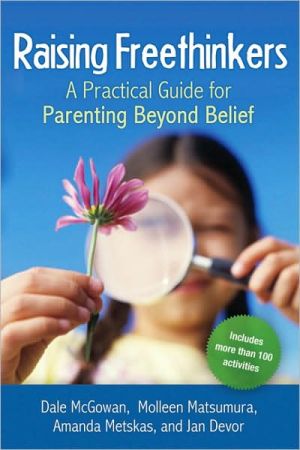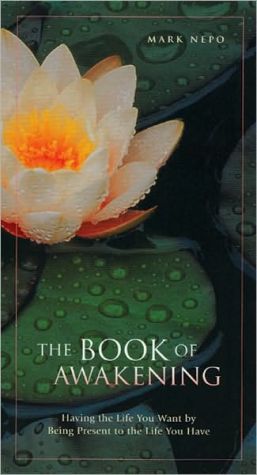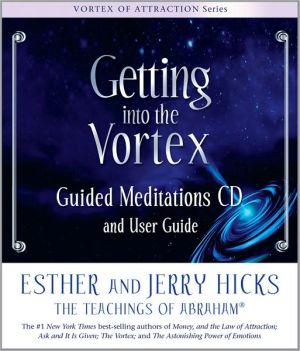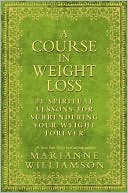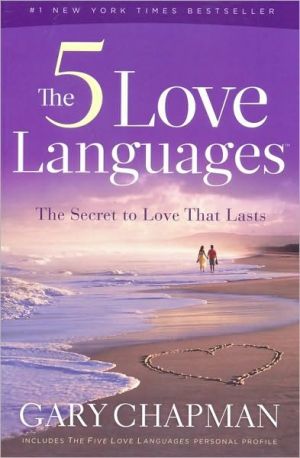Raising Freethinkers: A Practical Guide for Parenting Beyond Belief
Praised by Newsweek as “a compelling read” and Library Journal as “accessible and down-to-earth,” Dale McGowan’s Parenting Beyond Belief offered freethinking parents everywhere a compassionate introduction to raising caring, ethical children without religious guidance. Now, for the more than 40 million people in the United States who identify themselves as nonreligious, Raising Freethinkers offers solutions to the unique challenges secular parents face and provides specific answers to common...
Search in google:
As a freethinking parent, you face a unique set of challenges in raising children with-out religious guidance. How will you help them understand issues like death, sexuality, morality, and religion itself, all while encouraging them to think for themselves? Janet Clapp - Library Journal Parents who choose to raise their children without religion still face life issues for which religion often supplies answers. This guide to nonreligious parenting is a practical follow-up to McGowan's Parenting Beyond Belief. Primarily in a question-and-answer format, McGowan and educators and scholars Molleen Matsumura, Amanda Metskas, and Jan Devor emphasize respect, independent thinking, and secular humanism when dealing with ethics, death, rituals, holidays, sexual education, and a religious society. Rather than dismissing religion, the authors advocate exploration and understanding of all religions and mythologies. Each chapter concludes with suggested activities to engage children's minds and hearts. Also included are descriptive reviews of recommended books, web sites, films, and other materials. Recognizing the need for community that a church often fulfills, the authors refer to Unitarian Universalism, Ethical Societies, or Jewish Humanism congregations. Web sites and blogs for freethinking, humanist, and atheist groups are listed. Many books exist about religious and ethical parenting, but this unique resource will help parents looking for useful ideas and information on being a nonreligious family. Recommended for public libraries.
CHAPTER 1: The Inquiring Mind\ Dale McGowan\ How does white milk come from a red cow?\ Why doesn’t the sun fall down?\ How is it that all rivers flow into the ocean without ever filling it?\ These questions, which could have come from any child today, are from the Rig\ Veda, a 3000-year-old Hindu text—and wondering and questioning are surely\ much older still. Early Homo sapiens, endowed with the same cranial capacity\ as your Aunt Diane,1 had to be asking similar questions 125,000 years ago.And\ once oral language developed sufficiently to share these thoughts, parents and\ others around a child would have had to respond, one way or another, to the\ endless stream of questions.\ It’s the human impulse to wonder and ask questions that eventually gave\ birth to both religion and science, two different ways of responding to the\ same challenge: an overdeveloped neocortex hungry for answers.\ In preparing to write this book, I plunged into the current parenting literature\ from many perspectives, including religious parenting books. Some\ are very sound, like the well-grounded work of Christian parenting author Dr.\ William Sears. Some are mixed, including (to my admitted surprise) James\ Dobson, who serves up some solid parenting advice along with his unfortunate\ enthusiasm for corporal punishment, gender stereotypes, and homophobia.\ But if book sales and general prominence are any measure, one parenting\ author has had more to say about questioning and the life of the mind than any\ other: author and televangelist Joyce Meyer. Meyer has sold over a million\ copies of a book called Battlefield of the Mind: Winning the Battle in Your Mind,\ for which this passage can serve as an encapsulation:\ I once asked the Lord why so many people are confused and He said to me,\ “Tell them to stop trying to figure everything out, and they will stop being\ confused.” I have found it to be absolutely true. Reasoning and confusion go together.\ In 2006, Meyer issued a version of Battlefield of the Mind for teens, including passages\ like this:\ I was totally confused about everything, and I didn’t know why. One thing that\ added to my confusion was too much reasoning.\ This mantra comes back again and again in her advice, in millions of books and\ throughout her broadcasting empire: Don’t even start thinking. Most troubling of all is\ the attempt to make kids fear their own thoughts—right at the age they should be\ challenging and questioning in order to become autonomous adults:\ Ask yourself, continually, “WWJT?” [What Would Jesus Think?] Remember, if He\ wouldn’t think about something, you shouldn’t either. . . . By keeping continual\ watch over your thoughts, you can ensure that no damaging enemy thoughts creep\ into your mind. (from Battlefield of the Mind for Teens)\ Many progressive religious parents are outraged by Meyer’s “fearthought” approach.\ But even those of us who don’t consciously sign on to this kind of thinking must look it\ squarely in the eye—because it’s in our cultural blood.Most of us were raised in homes\ that were religious to some degree, and many of us carry remnants of these fearful ideologies\ into our own parenting.Whether we are religious or nonreligious, our attitudes toward\ questioning and moral development too often include some undercurrent of anxiety\ and mistrust, the unspoken feeling that our primary job as parents is to stave off a\ bubbling depravity that lurks just below the surface of our children.\ “When University of Texas\ sociologists John P. Bartkowski\ and Christopher G. Ellison compared\ dozens of secular parenting\ books with conservative\ Protestant parenting manuals,\ they found that a literal interpretation\ of the Bible’s childrearing\ advice contributed directly\ to a worship of authority in all\ spheres of life, including the political.\ . . . They also found that\ conservative evangelical parenting\ gurus disagreed with\ mainstream counterparts on virtually\ every issue. According\ to their study, secular, sciencebased\ parenting advice emphasizes\ personality adjustment,\ empathy, cooperation, creativity,\ curiosity, egalitarian relations\ between parents, nonviolent\ discipline, and self-direction.\ Conservative Protestants, on the\ other hand, stress a tightly hierarchical\ family structure and a\ gendered division of labor, with\ a breadwinning father at the top\ of the pyramid and children at\ the bottom.”\ --Jeremy Adam Smith, senior\ editor, Greater Good magazine\ In this chapter, I hope to make the case that this trembling view of human\ nature is simply not borne out by the best of our knowledge.We will focus on\ the moment of the question, a moment that is the foundation of freethought\ parenting, encouraging an approach that holds no question unaskable and no\ thought unthinkable.\ I want the idea that questions can be feared because of the answers they might\ produce to baffle my kids. I want them to find hilariously silly the idea that certain\ lines of thought cannot even be pursued, lest they be caught. That requires\ a certain amount of parental self-discipline. It requires the ability, for example, to\ not paint the far wall with soup when the 5-year-old asks if monkeys have vaginas,\ or why black people have big lips, or who will put her blankie on her grave\ when she dies—all three of which have come up at our dinner table. It requires\ a firm conviction that there is no rock that can’t be upended if you think there\ might be something under it.And, of course, there always, always might.\ Let’s begin with a conversation about wonder and curiosity, the incentives\ that drive questioning, then dive into the art, science, and joy of questioning\ itself.
Preface vAcknowledgments xiiiChapter One The Inquiring Mind Dale McGowan 1Chapter Two Living and Teaching Ethics in Your Family Molleen Matsumura 33Chapter Three Secular Family, Religious World Jan Devor 67Chapter Four The Physical Self Amanda Metskas 97Chapter Five Ingredients of a Life Worth Living Molleen Matsumura 129Chapter Six Celebrating Life Jan Devor 153Chapter Seven Death and Life Dale McGowan 175Chapter Eight Finding and Creating Community Amanda Metskas 203Chapter Nine The Grab Bag Dale McGowan 233Appendix I Recommended Films by Category 253Appendix II Lists of Principles 257Index 263
\ From the Publisher“This unique resource will help parents looking for useful ideas and information on being a nonreligious family. Recommended for public libraries.” Library Journal\ \ \ \ \ \ Library JournalParents who choose to raise their children without religion still face life issues for which religion often supplies answers. This guide to nonreligious parenting is a practical follow-up to McGowan's Parenting Beyond Belief. Primarily in a question-and-answer format, McGowan and educators and scholars Molleen Matsumura, Amanda Metskas, and Jan Devor emphasize respect, independent thinking, and secular humanism when dealing with ethics, death, rituals, holidays, sexual education, and a religious society. Rather than dismissing religion, the authors advocate exploration and understanding of all religions and mythologies. Each chapter concludes with suggested activities to engage children's minds and hearts. Also included are descriptive reviews of recommended books, web sites, films, and other materials. Recognizing the need for community that a church often fulfills, the authors refer to Unitarian Universalism, Ethical Societies, or Jewish Humanism congregations. Web sites and blogs for freethinking, humanist, and atheist groups are listed. Many books exist about religious and ethical parenting, but this unique resource will help parents looking for useful ideas and information on being a nonreligious family. Recommended for public libraries.\ —Janet Clapp\ \ \
